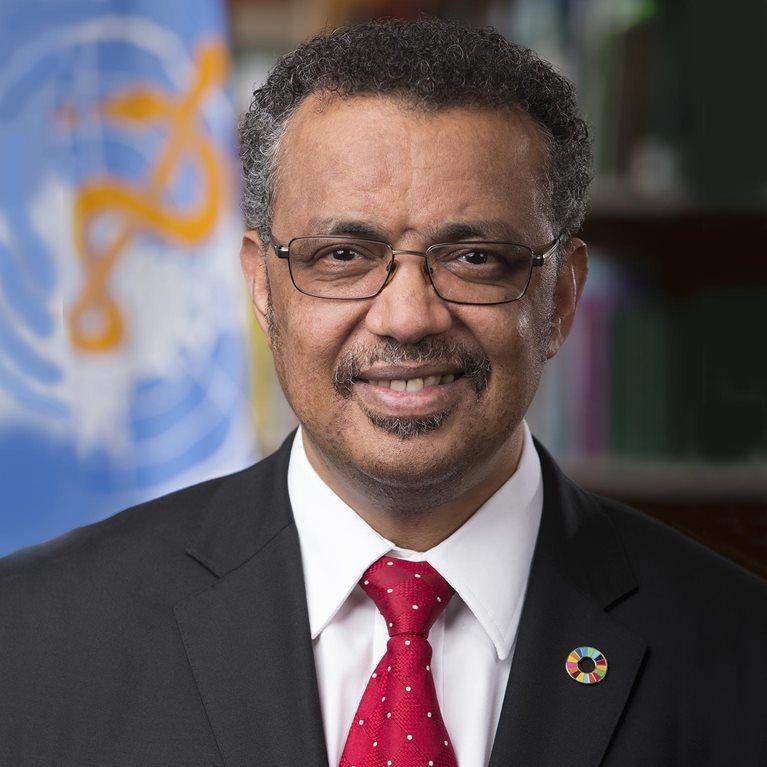Earlier on April 7 this year, the World Health Organisation (WHO) observed its 75th anniversary of World Health Day with the theme of 'Health for All'.
IN 1948, the World Health Organisation’s (WHO) constitution, a treaty between the nations of the world, came into force after the deadliest and most destructive war in human history.
Marking its 75th anniversary this year, WHO observed World Health Day along with its 194 member countries and partners across the globe and celebrated its successes including smallpox eradication, reducing the incidence of polio by 99%, saving millions of lives through childhood immunisation, declines in maternal mortality, and improving health and well-being for millions more.
Despite having made extraordinary progress in protecting people from diseases and destruction – improving public health across the globe in general – WHO called on a renewed drive for health equity to hasten achieving its “Health for All” agenda.
“We continue to face vast inequities in access to health services, major gaps in the world’s defences against health emergencies, and threats from health harming products and the climate crisis. We can only meet these global challenges with global cooperation,” says WHO Director-General Dr Tedros Adhanom Ghebreyesus.
Malaysia, part of the WHO network, is no different. The nation’s healthcare system which has progressed since Independence in 1957 still carries certain cracks, but it isn’t resting on its laurels.
Making headway
The government’s intention to table a Health White Paper to secure parliamentary agreement and commitment toward future-proofing Malaysia’s healthcare system has been met with some scepticism, but ultimately, its tabling slated for June is highly anticipated.
“There will be elements of the United Nations Sustainable Development Goals and environmental, social and governance (ESG) in the Health White paper. We are awaiting it with great expectations,” says MERCY Malaysia president Prof Datuk Dr Ahmad Faizal Mohd Perdaus, a renowned pulmonologist (respiratory specialist) currently practising at KPJ Damansara Specialist Hospital.
He says the Health White Paper is expected to feature a recommendation for the implementation of a national social health insurance programme, which will be beneficial to the public health sector.
According to Health Minister Dr Zaliha Mustafa, one of the strategic cores of the Health White Paper is to ensure the sustainability of health care financing by diversifying health care financing sources, with a special focus on the development of a national health insurance scheme.
“If the mandate is obtained through the approval of the Health White Paper, the ministry will take further steps by carrying out the necessary groundwork in developing a social national health insurance scheme, such as providing contribution rates that are appropriate, developing health benefit packages, determining the payment mechanisms and health care service providers,” she said in Parliament.
Dr Ahmad Faizal also points out the increasing number of public-private partnerships between the Health Ministry and the private sector post Covid-19 due to the realisation of the need to maintain a good public health system, keeping good records, up-to-date data and documentation.
“Covid-19 jolted us into the crucial concept of a whole of society, whole of government approach as an enabler in tackling public health crises. No one can be left behind and no one is safe until everyone is safe.”
This has led to the increased commitment by the government to boost the Health Ministry’s budget for 2022 and 2023 – though people are continually advocating for it to be more than 5% of the total gross domestic product (GDP).
“With the increased realisation and increased financial allocation, there will be increased commitment to improving health services in the public sector as well as public health,” says Dr Ahmad Faizal.
He adds that even the private sector is giving more emphasis on the health aspects of employees, premises, organisation and has begun promoting and advocating for sustainable development or the incorporation of the UN SDGs into their business model.
Memorable successes
Malaysia has made substantial progress in achieving good outcomes on health indicators and in providing affordable universal health coverage, gaining recognition and acknowledgement from international bodies.
“Malaysia has done well in a few aspects since our independence in 1957 where public health was not yet known.
“Since then, public health in Malaysia has been steered towards the wellbeing of the people of the country, maternal and child health, rural health and the combating of infectious diseases and rightfully earned recognition and applause from international bodies globally and regionally for achieving milestones that most other developing countries have not,” says Dr Ahmad Faizal.
The United Nations Development Programme recognised Malaysia’s efforts in improving the population’s health outcomes by providing high-quality as well as accessible health services and even made us a model for low-and middle-income countries to follow.
Additionally, a survey published by Ipsos that places the level of trust Malaysians have for its healthcare system at 64%. This outperforms the global country average and is the eighth highest among the 34 countries surveyed.
Malaysia was ranked No.1 in the world’s best healthcare category in the 2019 International Living Annual Global Retirement Index.
WHO has also acknowledged the nation’s strong capacity in outbreak preparedness and response which established a stable foundation in its Covid-19 pandemic outbreak response.
To further secure progress and reforms that can be celebrated in the future, current issues must be addressed and health policies formulated with genuine consultation with stakeholders to prevent further cracks in the system – prevention is better than cure as most healthcare professionals might say.
Otherwise, public trust may wane due to lack of compliance with standard operating procedures, communication and meaningful engagements between the government with society, as well as poorly implemented health and healthcare measures.
Given that Malaysia has a new government in place after the last general election, will there be long-term healthcare reforms that stick? Only time will tell.







